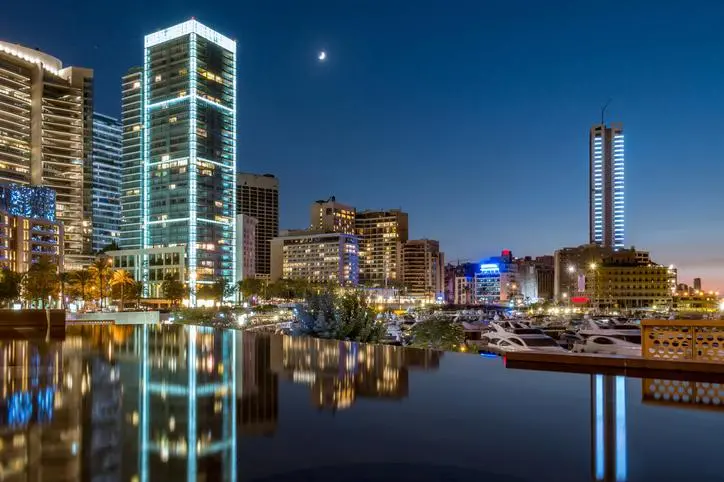PHOTO
BEIRUT: Lebanons SmartEx exhibition opened this week with scores of companies showcasing their innovations and with experts discussing the challenges and opportunities of Lebanons tech sector. The four-day evening exhibition, which opened Wednesday, featured different aspects of the countrys technology sector, from information, to telecommunication, security, automation and retail.
This is the second year of the conference, which spawned from a Saudi tech and networking event in 2007 that then spread throughout the region.
This years edition follows the recent CEDRE Conference with $11 billion in loans and grants to rehabilitate Lebanons infrastructure and few days away from the long-awaited elections, with high hopes of developing Lebanon into a genuine tech hub in the region.
Lebanese Telecommunications Minister Jamal Jarrah opened the exhibition by highlighting the accomplishments of Lebanons entrepreneurs being able to hold their own in global startup competitions. Our youths have shown distinction on the global stage, he said.
Jason Rizk, managing director of MICE (Meetings, Incentives, Conferences, and Exhibitions) Lebanon, told The Daily Star, We want to reposition Lebanon as a tech and business tourism hub, and as a tech platform in the Middle East.
We have a very talented workforce. A lot of guys are going abroad. When they go abroad they shine whether its in startup competitions or in businesses. I dont want them to go abroad anymore. Lebanon is the right place for them.
Similarly, Izzat Jaroudi, sales account manager at Soft Flow, an IT solutions and services company, said. We need to go outside Lebanon to go back to Lebanon. Were always managers. But in our country we cant be that because no one believes in us. I dont want to leave.
Such pleas come after years of frustration over weak infrastructure, including daily power cuts, and improper waste disposal, as well as a lack of good job opportunities, which have led some of the countrys most talented professionals to travel abroad.
It is also at a time when the countrys technology sector is starting to be taken seriously not just as a niche industry, but rather as an integral part of a wide range of businesses, such as printing, education and hospitality.
According to IDAL, Lebanons ICT (information and computer technology) sector grew by an astounding 9.7 percent in 2017, among the countrys fastest-growing industries.
This growth has been widely credited to Circular 331, the central bank-guaranteed fund for Lebanese startups, which has allowed many Lebanese entrepreneurs to develop their innovative products and companies at home.
Sami Abou Saab, CEO of Speed, who will be closing the summit Saturday with a startup competition, noted that the Beirut-based accelerator has led to around 600 jobs.
I believe this is the time where people should double down on their support to the tech industry and especially innovation, he said.
We need more awareness of IT in Lebanon. Were still small group of companies, and we need more investment and encouragement. It shouldnt be a small sector. Companies should use more technology as added value in their business, said Patrick Raad, CEO of Techno Vision, a GPS tracking system.
Raidy is yet another company that has already made the switch from traditional to high-tech by keeping up with the market trends and demands.
What started as a printing press in 1973 became a go-to center for 3D printing in Lebanon and the rest of the region.
The world is fast changing, and we already had expertise in printing, so 3-D was an extension of that, said MarieJoe Raidy, creative director at Raidy Printing Group, which holds free monthly workshops on 3-D printing, and she has found Lebanese to be the fastest adopters in the region.
She has found that 3-D printing has helped fill some of the gaps in areas where Lebanon is lacking medical solutions, the manufacturing of spare parts, and inexpensive design prototypes.
For Nour Atrissi, the lack of IT development in Lebanon has been both a challenge and an opportunity to fill a gap in the market by offering education to youths through her business Teens Who Code.
Every startup has its own set of challenges regardless of the country where its being developed. For Lebanon specifically, more education needs to be done for youths who are excited about starting their own companies, she said.
I see the tech startup ecosystem in Lebanon as a foundational pillar in Lebanons future.
Copyright 2018, The Daily Star. All rights reserved. Provided by SyndiGate Media Inc. (Syndigate.info).





















